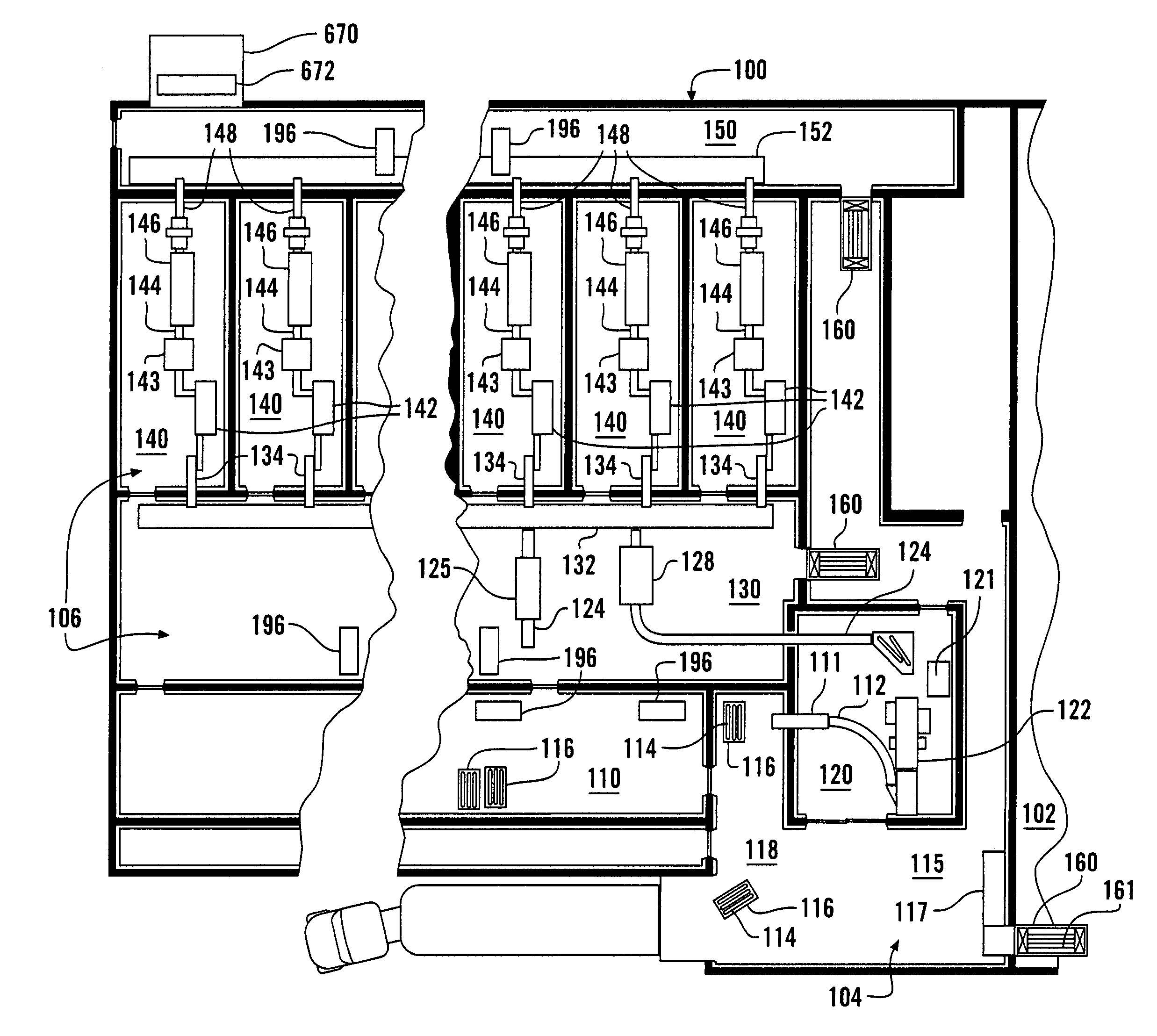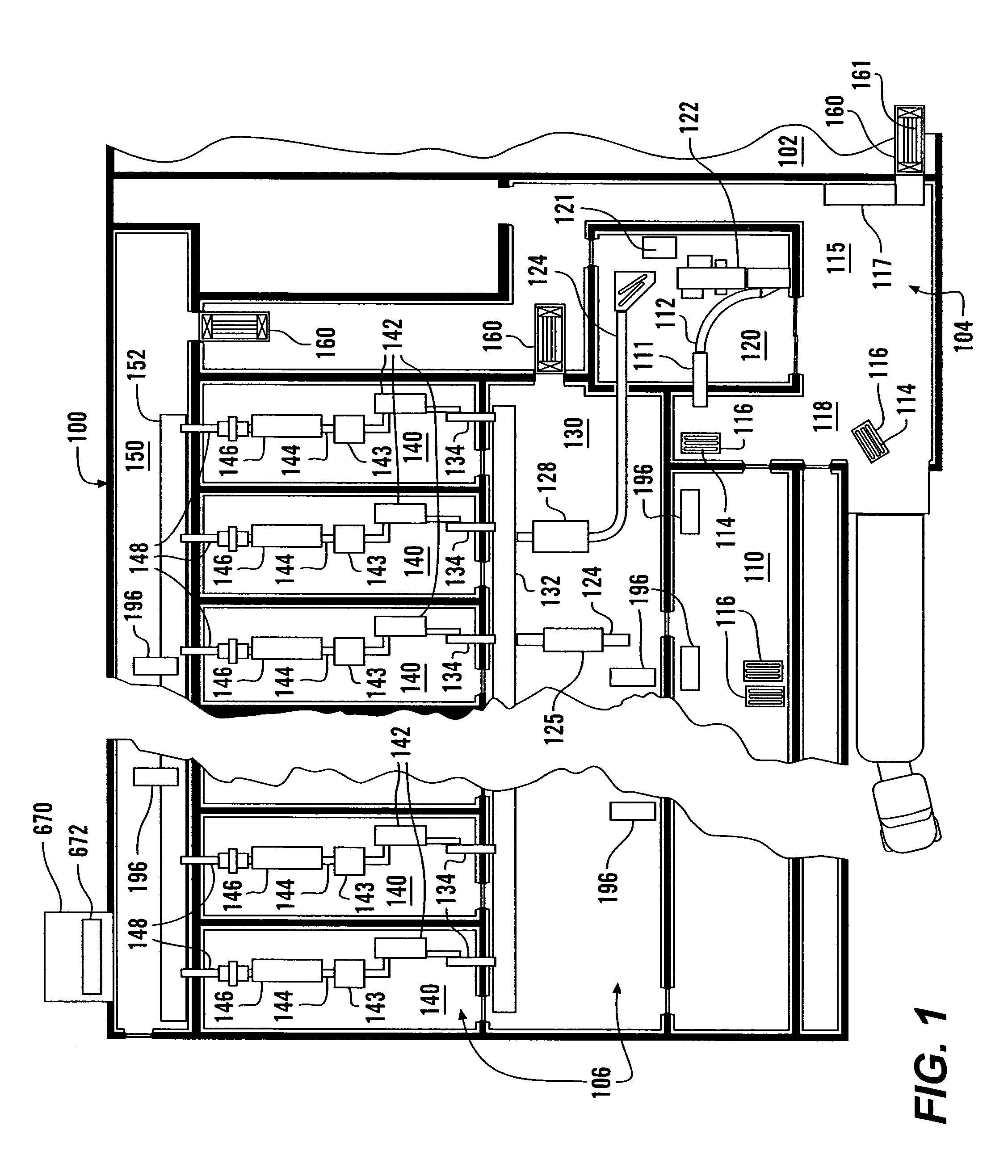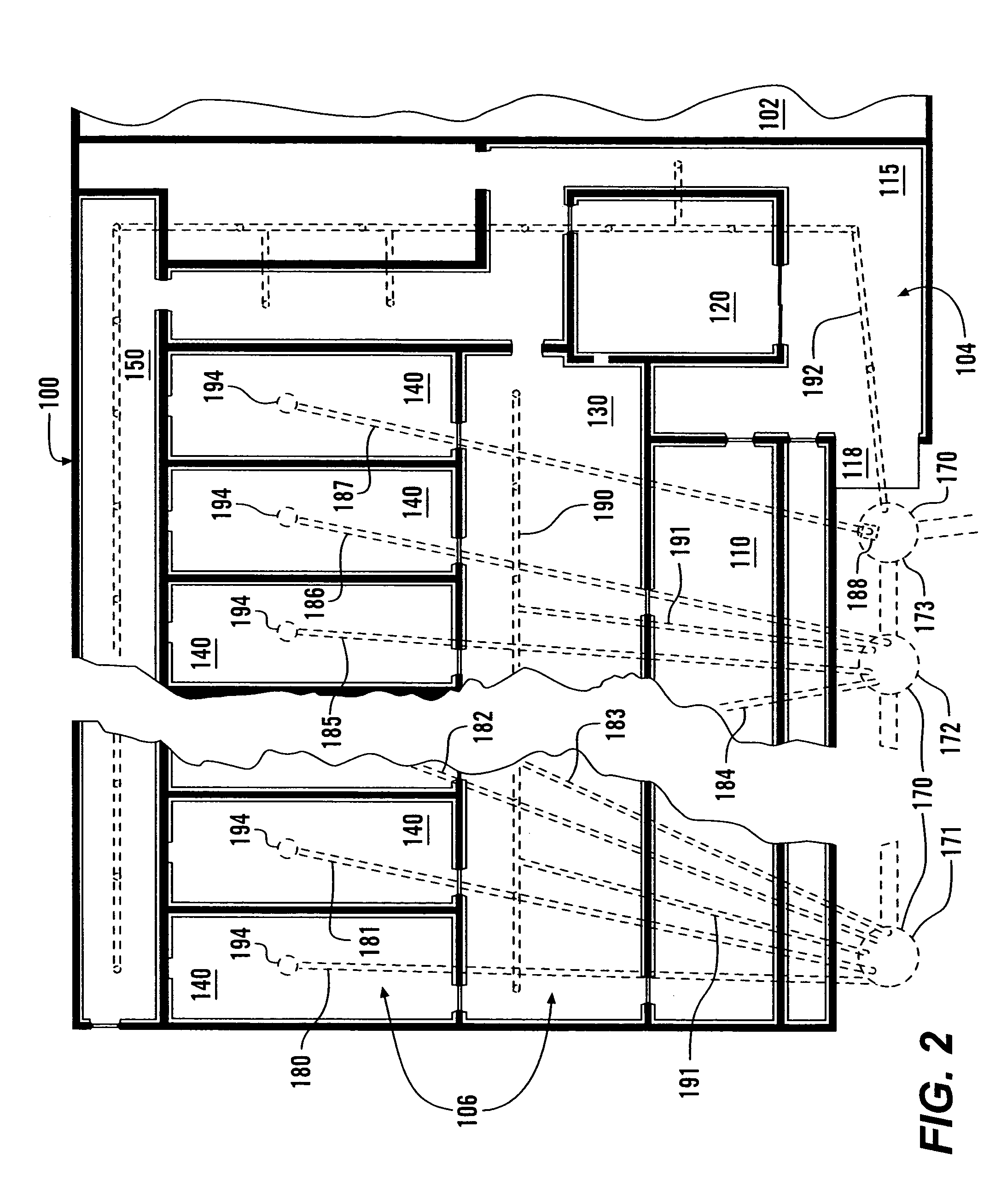Clean room food processing systems, methods and structures
a technology of food processing and clean room, applied in the field of clean room food processing systems, methods and structures, can solve the problems of significant challenges, contamination by bacteria or other food, etc., and achieve the effects of reducing the ability of contamination
- Summary
- Abstract
- Description
- Claims
- Application Information
AI Technical Summary
Benefits of technology
Problems solved by technology
Method used
Image
Examples
Embodiment Construction
[0044]As developed countries, such as the United States, consume ever larger percentages of processed food products, the safety of such processed food products has become of paramount importance. As a result, various governmental agencies in such developed countries have promulgated various rules and regulations which have improved food quality and safety and have substantially eliminated contamination or adulteration of such processed food products by most common food-born pathogens.
[0045]However, this has opened up the possibility of contamination or adulteration by more marginalized food pathogens. That is, the most common food pathogens are those that grow most readily and rapidly on food products at room temperatures in standard environments, and can be controlled or lethally treated by refrigeration and heat treatment. However, in the absence of such pathogens controlled or eliminated by conventional refrigeration and heat treatment, other pathogens have shown the ability to g...
PUM
| Property | Measurement | Unit |
|---|---|---|
| velocity | aaaaa | aaaaa |
| area | aaaaa | aaaaa |
| perimeter | aaaaa | aaaaa |
Abstract
Description
Claims
Application Information
 Login to View More
Login to View More - R&D
- Intellectual Property
- Life Sciences
- Materials
- Tech Scout
- Unparalleled Data Quality
- Higher Quality Content
- 60% Fewer Hallucinations
Browse by: Latest US Patents, China's latest patents, Technical Efficacy Thesaurus, Application Domain, Technology Topic, Popular Technical Reports.
© 2025 PatSnap. All rights reserved.Legal|Privacy policy|Modern Slavery Act Transparency Statement|Sitemap|About US| Contact US: help@patsnap.com



